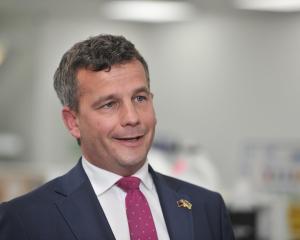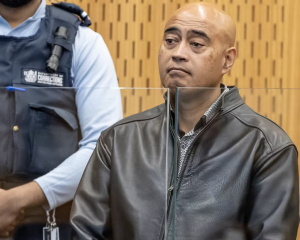
BrainTree is the latest project by former Ryman Healthcare chief executive Simon Challies, who was diagnosed with Parkinson’s in 2011 and admits for seven years he never got in contact with anyone else suffering from the same disorder.
“There is a real stigma to having these conditions, people don’t seek out support freely and tend to hide away and don’t own up to it and I can tell you that because I did that. I took seven years before I even met another person with Parkinson’s.
“People are staunch, protective and private about it, but that doesn’t help with the condition, in fact it does the opposite,” Mr Challies said.
The $6.3 million BrainTree project has been developed by the Canterbury Brain Collective, a joint venture between Multiple Sclerosis and Parkinson’s Canterbury, and Dementia Canterbury.
Anticipating a 2021 opening, the centre has secured a site on Langdons Rd in in Papanui and has already gained $2.5 million in funding from private investors and $100,000 from the Christchurch City Council’s 2019/20 capital endowment fund.
Later this year, the CDC will take its fundraising campaign public.

The community-based wellness centre will be available for all people living with any neurological conditions.
Said Mr Challies: “It’s a place where people could feel comfortable to catch up with friends attend gym classes, yoga classes, dance classes, explore the café and seminar rooms where they could attend regular education sessions.”
“We’ll provide practical everyday support with a unique total-wellness approach - covering exercise, diet, cognitive stimulation, education and social connection,” said the centre’s website.
A year after his diagnoses, Mr Challies met with a United States specialist, who told him the people who lived well with neurological conditions were the people who “ate super healthy, physically and mentally challenged themselves, had social contact and slept well”, he said.
“I had a revelation," Mr Challies said.
"At the time I approached him because I wanted to know whether or not carrying on in my role as CEO of Ryman was putting myself into an early grave and he said 'no, you probably feel quite fatigued but it wouldn’t change the progression of the disease'.”
Other big local names behind the new project, aside from Mr Challies, the co-founder of post-earthquake social media project Braveheart Chch, includes Graeme Marriott, founding partner of accounting firm Marriotts, now Nexia NZ, and Brendan Prendergast, former director and founder of MOVE Logistics Ltd.

- Dementia is not one specific disease, but an umbrella term that is used to describe more than 70 different illnesses that affect the brain. It can cause problems with memory, everyday tasks, like handling money and issues with communication and perception.
- Within the next 20 years, the number of Cantabrians with dementia is set to double to 30,000 - the current population of Timaru.
- By 2043, a quarter of Canterbury’s population will be aged 65 or over, up from 15.2 per cent in 2013.
- Multiple Sclerosis (MS) is a condition that affects the central nervous system, including the brain and spinal cords.
- It is believed that about one in 1000 New Zealanders have a diagnosis of MS.
- Parkinson’s is a progressive disorder of the nervous system that affects your movement. It develops gradually, sometimes starting as a tremor but may show as stiffness or slowness of movement.
- About one in 500 people have Parkinson’s. The average age of diagnosis is 59 and it is believed that one per cent of people over the age of 60 have the condition.












